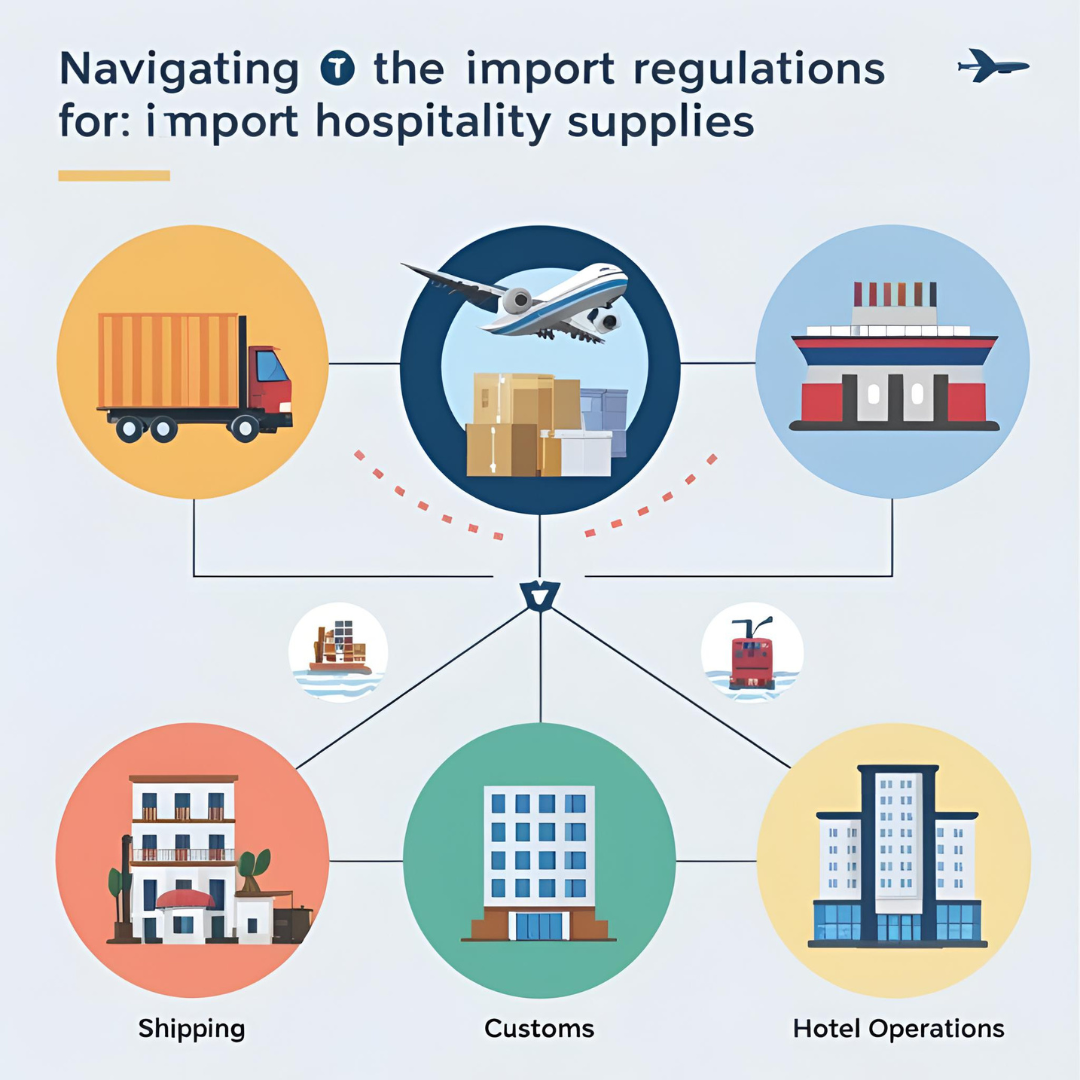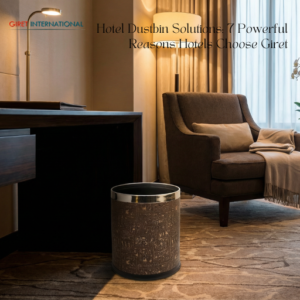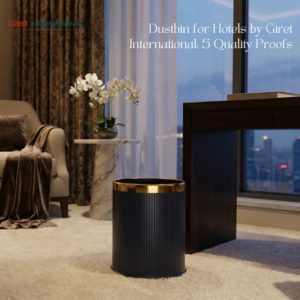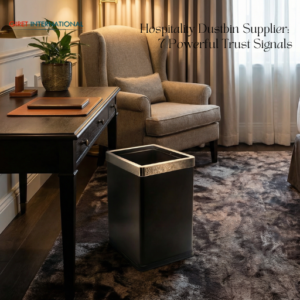In the fast-paced world of hospitality, having the right supplies is crucial to ensuring smooth operations and an exceptional guest experience. However, importing hospitality supplies—whether it’s luxury linens, high-end kitchenware, or cutting-edge operational equipment—comes with its own set of challenges. Understanding and navigating import regulations can save time, prevent costly delays, and ensure compliance with international trade laws.
At GIRET International, we specialize in sourcing and supplying top-quality hospitality OS&E (Operating Supplies & Equipment), helping businesses stay ahead of trends while meeting regulatory requirements.
Why Import Regulations Matter in Hospitality
Import regulations are put in place to ensure product safety, quality standards, and fair trade practices. Compliance with these regulations not only protects your business from legal complications but also guarantees that your guests receive high-quality, safe, and reliable products.
Failing to adhere to these rules can lead to fines, shipment delays, and even product recalls—all of which can negatively impact a hotel or resort’s reputation and operations.
Key Aspects of Import Regulations for Hospitality Supplies
Understanding the main components of import regulations will help you streamline your procurement process and avoid unnecessary obstacles.
1. Product Compliance and Certification
Many hospitality products, such as electronics, textiles, and kitchen equipment, must meet specific quality and safety standards before they can be imported. Some key certifications to look out for include:
- FDA Compliance (for food-related items in the U.S.)
- CE Marking (for electronics in the European Union)
- ISO Certifications (for various product quality standards)
- Eco-Certifications (for sustainable and organic hospitality products)
2. Customs Duties and Tariffs
Different countries impose varying customs duties and tariffs on imported goods. These costs can significantly impact your budget, so it’s essential to:
- Research the tariff rates for specific product categories.
- Determine if your supplier’s country has a trade agreement that offers reduced tariffs.
- Work with customs brokers to understand duty exemptions or reductions.
3. Restricted or Prohibited Goods
Some countries have strict regulations on certain materials and products. For example:
- Textiles and fabrics might require additional chemical testing.
- Bamboo or wooden products may be subject to pest control regulations.
- Kitchen appliances and electronics may need to meet energy efficiency standards.
Knowing these restrictions in advance can help you avoid shipment rejections and additional costs.
4. Labeling and Packaging Requirements
Proper labeling ensures compliance with local laws and smooth customs clearance. Common labeling requirements include:
- Country of origin marking
- Safety and usage instructions
- Material composition details (especially for textiles and food-related items)
5. Shipping and Logistics Compliance
Different shipping methods (air, sea, or land) come with specific regulations, including:
- Container weight limits and size restrictions
- Proper documentation (such as Bill of Lading, Commercial Invoice, and Packing List)
- Insurance requirements to cover potential losses or damages
How to Ensure Smooth Importing of Hospitality Supplies
Navigating import regulations can be complex, but these best practices can help ensure a hassle-free process:
1. Work with Reputable Suppliers
Partnering with trusted and experienced suppliers, like those sourced through GIRET International, ensures that the products you receive meet the necessary compliance requirements. Always verify supplier certifications and past export records.
2. Use a Licensed Customs Broker
A licensed customs broker can handle documentation, duty payments, and clearance procedures on your behalf. They can also help you navigate any regulatory changes that may impact your imports.
3. Stay Updated on Changing Regulations
Import laws and trade agreements change frequently. Subscribe to trade bulletins or work with industry experts to stay informed about any updates that might affect your supply chain.
4. Plan for Lead Times and Delays
International shipping can be unpredictable due to factors like customs inspections, port congestion, or unforeseen regulatory hurdles. Always factor in extra time when ordering imported hospitality supplies.
5. Ensure Proper Documentation
Having complete and accurate paperwork is key to avoiding delays. Common documents required for import clearance include:
- Purchase Order & Invoice
- Certificate of Origin
- Import License (if applicable)
- Safety Compliance Certificates
Conclusion
Importing hospitality supplies requires careful planning, knowledge of regulatory requirements, and collaboration with reliable partners. By understanding customs duties, compliance regulations, and shipping logistics, hospitality businesses can avoid costly setbacks and maintain a seamless supply chain.
At GIRET International, we help hospitality businesses navigate the complexities of importing high-quality OS&E solutions with ease. Whether you’re looking for premium linens, sustainable guest amenities, or state-of-the-art kitchen equipment, our team ensures that your supplies meet all necessary regulations and arrive on time.
Explore our curated selection of hospitality OS&E products at GIRET International and simplify your procurement process today!





